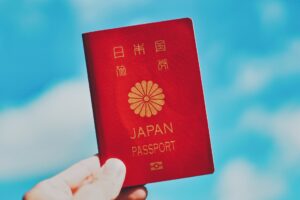📌 Case Studies of Naturalization and Key Points Checked During the Screening Process
Many people considering naturalization in Japan worry about whether they will actually be approved. Even if you meet the residence requirement, some applications still get rejected due to other factors.
- What types of applicants are more likely to be approved?
- Why are some people rejected even after living in Japan for over five years?
- What kind of questions are asked in the interview?
In this article, we’ll examine real-life cases of naturalization and highlight the key points reviewed during the screening process.
1. Key Points Checked During the Naturalization Screening Process
During the screening process, immigration officials focus on the following five key areas:
✅ Residence Requirement (Have you lived in Japan for at least five years?)
✅ Good Conduct Requirement (Do you follow Japanese laws and maintain good behavior?)
✅ Financial Stability Requirement (Do you have a stable income and the ability to support yourself in Japan?)
✅ Nationality Requirement (Can you give up your original nationality to avoid dual citizenship issues?)
✅ Japanese Language Requirement (Can you communicate in Japanese in daily life?)
If you meet all these requirements, your chances of approval will be significantly higher.
2. Case Studies of Successful Naturalization
🔹 Case 1: A Company Employee Who Successfully Naturalized
📌 Basic Information
- Nationality: South Korean
- Time in Japan: 10 years
- Visa Type: Work Visa (Engineer/Humanities/International Services) → Permanent Resident
- Income: Stable salary (¥5 million per year)
- Japanese Proficiency: N2 Level
- Family: Married to a Japanese citizen
✅ Key Factors for Approval
- Met the residence requirement (10 years in Japan)
- Stable job and no unpaid taxes or pension contributions
- Marriage to a Japanese citizen, which provided additional stability
- Good Japanese proficiency (smooth conversation during the interview)
💡 Because this applicant had a stable life in Japan and met all requirements, their naturalization was approved without issues.
🔹 Case 2: A Restaurant Owner Who Successfully Naturalized
📌 Basic Information
- Nationality: Chinese
- Time in Japan: 8 years (applied after 5 years)
- Visa Type: Long-Term Resident
- Occupation: Restaurant Owner (Annual Revenue: ¥15 million)
- Tax Status: All taxes and social insurance payments were up to date
- Japanese Proficiency: N3 Level
✅ Key Factors for Approval
- Business was financially stable, satisfying the financial stability requirement
- Paid all taxes and social insurance, proving financial responsibility
- Could communicate well in Japanese and answered interview questions smoothly
💡 Even as a self-employed person, naturalization is possible if you have a stable income and fulfill all legal requirements.
3. Cases Where Naturalization Was Rejected
🔹 Case 1: Application Denied Due to Unpaid Taxes
📌 Basic Information
- Nationality: Vietnamese
- Time in Japan: 7 years
- Visa Type: Work Visa
- Income: Company Employee (¥4 million per year)
- Tax Status: Had unpaid resident taxes in the past
❌ Why It Was Rejected
- Even though the taxes were eventually paid, past delays in payments negatively affected the application
- During the interview, the applicant was unable to clearly explain their tax payment history
💡 Unpaid or overdue taxes are one of the most critical factors that can lead to rejection.
🔹 Case 2: Application Denied Due to Multiple Traffic Violations
📌 Basic Information
- Nationality: Filipino
- Time in Japan: 6 years
- Visa Type: Long-Term Resident
- Tax Status: No issues
- Traffic Violations: 5 speeding tickets and 3 parking violations in the past three years
❌ Why It Was Rejected
- Too many traffic violations made the officials question the applicant’s ability to follow Japanese laws
- Multiple offenses in a short period created a negative impression
💡 Even minor traffic violations can negatively impact naturalization if they happen too often.
4. What to Expect in the Naturalization Interview
📌 The final stage of naturalization involves an interview at the Legal Affairs Bureau.
✅ Common Interview Questions
- Why do you want to become a Japanese citizen?
- Can you explain your job and income details?
- Have you been paying your taxes and pension correctly?
- What is your family situation, and how is your life in Japan?
- Can you read and write basic Japanese? (There may be a simple reading and writing test.)
💡 The interview mainly checks if you understand Japanese society and laws. Proper preparation is important.
Summary
🔹 Common factors in successful applications:
- Lived in Japan for over 5 years
- Stable employment and income
- No unpaid taxes or pension contributions
- Japanese language ability (N3–N2 level is ideal)
🔹 Common reasons for rejection:
- Unpaid or overdue taxes or pension contributions
- Frequent traffic violations or past criminal records
- Unstable income or inability to meet financial requirements
- Poor Japanese language skills that make communication difficult
If you are considering naturalization, check your current situation and prepare thoroughly to increase your chances of approval!
💬 Questions or Concerns?
✔ “I missed a tax payment before. Will that affect my application?”
✔ “I’m nervous about the interview. What should I prepare for?”
If you have any questions about the naturalization process, feel free to ask! 😊
